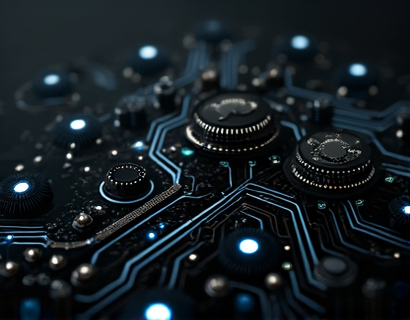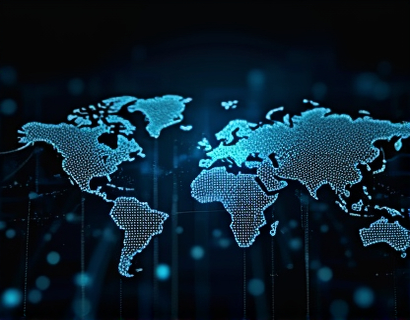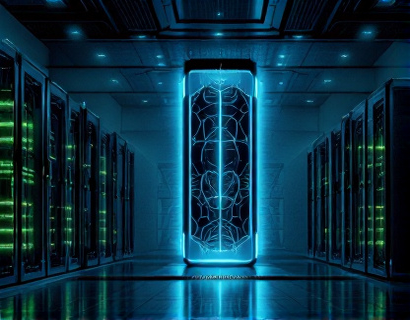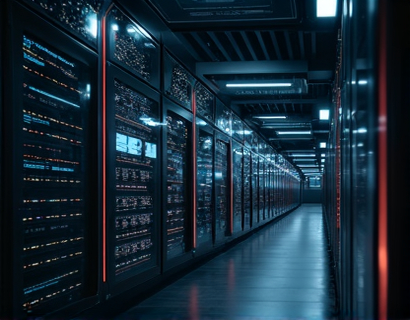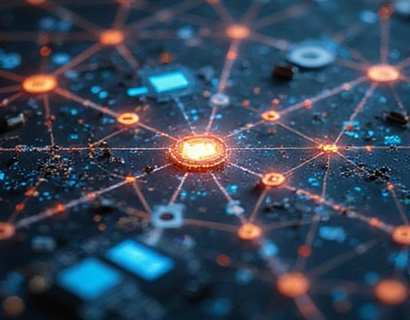Autonomous AI Agents: Streamlining Business Efficiency Across Blockchains and Technologies with Multi-Chain Automation Solutions
In the rapidly evolving digital landscape, businesses are constantly seeking innovative ways to enhance efficiency and maintain a competitive edge. One of the most transformative technologies emerging to address these needs is the integration of Autonomous AI Agents across multiple blockchains and technologies. These agents are not just tools; they are revolutionizing the way businesses operate by automating complex tasks, optimizing workflows, and ensuring seamless integration across diverse platforms. This article delves into the capabilities and benefits of Autonomous AI Agents, focusing on how they can streamline operations and drive productivity in a multi-chain environment.
The Role of Autonomous AI Agents in Business Automation
Autonomous AI Agents are designed to operate with minimal human intervention, leveraging advanced machine learning algorithms to perform a wide range of tasks. These agents can navigate and interact with various blockchain networks and other technological systems, making them ideal for businesses that operate in decentralized environments or require cross-platform integration. The primary goal of these agents is to automate repetitive and time-consuming processes, allowing human employees to focus on higher-value tasks that require creativity and strategic thinking.
The integration of AI agents across multiple blockchains is particularly significant because it addresses one of the biggest challenges in decentralized systems: interoperability. Traditional blockchain networks often operate in silos, making it difficult for businesses to leverage the full potential of decentralization. Autonomous AI Agents bridge this gap by acting as intermediaries that can communicate and transact across different blockchains seamlessly. This capability ensures that businesses can harness the benefits of multiple blockchain platforms without the complexity and cost associated with manual integration.
Multi-Chain Automation Solutions
Multi-chain automation solutions are at the core of what makes Autonomous AI Agents so powerful. These solutions enable businesses to automate workflows that span multiple blockchain networks, ensuring consistency and efficiency. For instance, a supply chain management system can use AI agents to track goods as they move through various blockchain-based registries, from production to delivery. Each step in the process, from manufacturing to shipping, can be automated and monitored in real-time, reducing delays and errors.
One of the key advantages of multi-chain automation is the ability to create a unified view of operations. Businesses can gain real-time insights into their entire supply chain, regardless of the blockchain platforms used by different partners. This holistic view not only improves decision-making but also enhances transparency and trust among all stakeholders. For example, a retailer can use AI agents to monitor inventory levels, track orders, and manage payments across different blockchains, ensuring a smooth and efficient customer experience.
Advanced AI Solutions for Complex Tasks
Autonomous AI Agents are not limited to simple automation tasks. They are equipped with advanced AI capabilities that allow them to handle complex and dynamic processes. Machine learning algorithms enable these agents to learn from data, adapt to new inputs, and perform tasks that traditionally required human intervention. This adaptability is crucial in environments where conditions change frequently, such as financial markets or logistics networks.
For instance, in the financial sector, AI agents can automate trading strategies by analyzing market data across multiple blockchains and traditional financial systems. These agents can identify patterns, predict trends, and execute trades with high precision and speed. This level of automation not only increases efficiency but also reduces the risk of human error and fraud.
In logistics, AI agents can optimize routes and schedules in real-time, taking into account various factors such as traffic conditions, weather, and vehicle availability. By integrating data from multiple sources, including IoT devices and blockchain-based tracking systems, these agents can make informed decisions that minimize costs and maximize delivery efficiency. This capability is particularly valuable for global supply chains where coordination across different regions and technologies is essential.
Enhancing Security and Trust
Security and trust are paramount in any blockchain-based system, and Autonomous AI Agents play a crucial role in enhancing these aspects. By automating verification and validation processes, these agents reduce the risk of human error and malicious activities. For example, smart contracts can be integrated with AI agents to ensure that all transactions meet predefined criteria before being executed. This adds an extra layer of security and ensures that all parties adhere to the agreed-upon terms.
Moreover, AI agents can monitor blockchain networks for anomalies and potential security threats in real-time. Machine learning algorithms can detect unusual patterns that may indicate a breach or fraudulent activity, allowing for immediate action to be taken. This proactive approach to security helps businesses maintain the integrity of their operations and build trust with customers and partners.
Case Studies and Real-World Applications
Several industries have already begun to leverage Autonomous AI Agents to streamline their operations and gain a competitive advantage. In the healthcare sector, AI agents can automate the management of medical records across different blockchain platforms, ensuring that patient data is secure, accessible, and consistent. This not only improves patient care but also enhances compliance with regulatory requirements.
In the energy sector, AI agents can optimize the trading of renewable energy credits across multiple blockchains, facilitating a more efficient and transparent market. This automation helps energy providers and consumers alike by ensuring that transactions are processed quickly and securely, while also promoting the use of sustainable energy sources.
Another notable application is in the realm of digital identity verification. AI agents can manage and verify digital identities across various blockchain-based identity systems, providing users with a seamless and secure experience. This is particularly beneficial for businesses operating in regions with stringent identity verification regulations, as it simplifies the compliance process and enhances user trust.
Challenges and Considerations
While the potential benefits of Autonomous AI Agents are significant, there are several challenges and considerations that businesses should be aware of. One of the primary challenges is the complexity of integrating AI agents with existing systems and blockchain networks. This requires a deep understanding of both AI and blockchain technologies, as well as expertise in system integration.
Another consideration is the need for robust governance frameworks to ensure that AI agents operate ethically and transparently. Businesses must establish clear guidelines and oversight mechanisms to manage the decision-making processes of these agents, especially in sensitive areas such as finance and healthcare. Additionally, there is a need for continuous monitoring and updating of AI models to adapt to changing environments and data landscapes.
Scalability is also a critical factor. As businesses grow and their operations become more complex, AI agents must be able to scale efficiently without compromising performance. This requires scalable infrastructure and flexible architectures that can handle increasing workloads and data volumes.
Future Trends and Innovations
The field of Autonomous AI Agents is rapidly evolving, with ongoing research and development pushing the boundaries of what is possible. One of the emerging trends is the integration of AI agents with edge computing, which allows for faster and more efficient data processing at the source of data generation. This combination can significantly reduce latency and improve the responsiveness of AI-driven automation in real-time applications.
Another area of innovation is the development of more sophisticated AI models that can handle multi-modal data, such as text, images, and sensor data. This capability will enable AI agents to perform more complex tasks and provide deeper insights, further enhancing their value in various industries.
Furthermore, the rise of decentralized AI (DAI) is set to transform how AI agents operate in a multi-chain environment. DAI involves distributing AI computations across multiple nodes in a decentralized network, ensuring that no single entity has control over the entire process. This approach not only enhances security and privacy but also promotes collaboration and innovation among different stakeholders.
Conclusion
Autonomous AI Agents represent a significant leap forward in business automation, offering unparalleled efficiency and flexibility across multiple blockchains and technologies. By automating complex tasks and optimizing workflows, these agents enable businesses to maximize productivity, reduce costs, and gain a competitive edge in the digital landscape. While there are challenges to consider, the potential benefits make the integration of AI agents an essential strategy for businesses looking to thrive in the future.


















